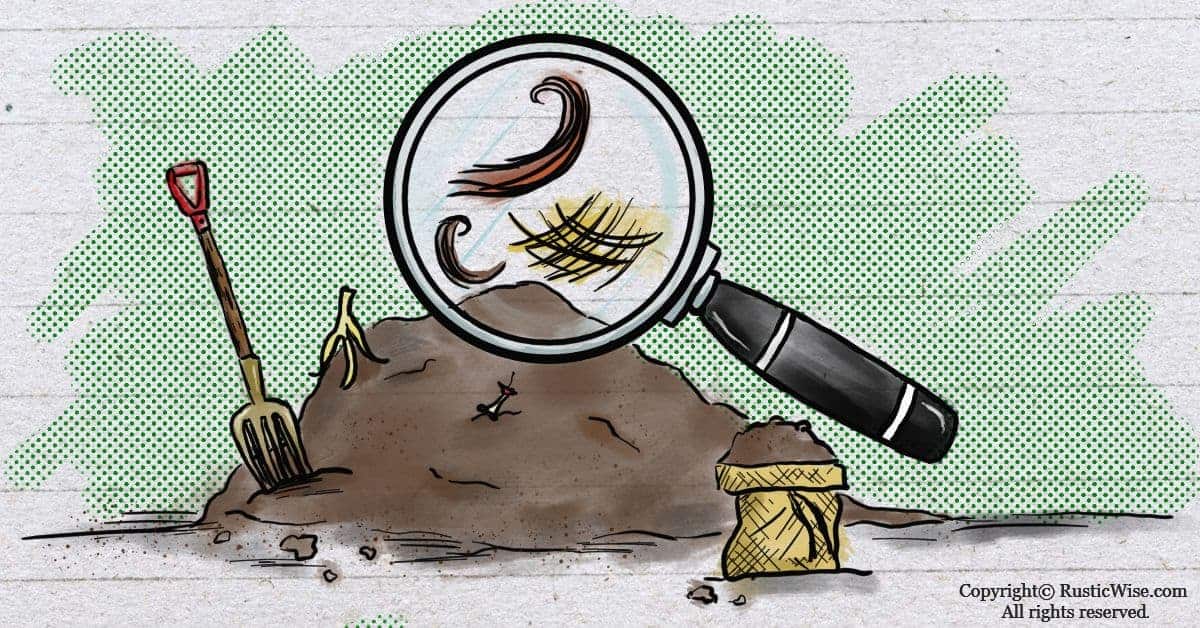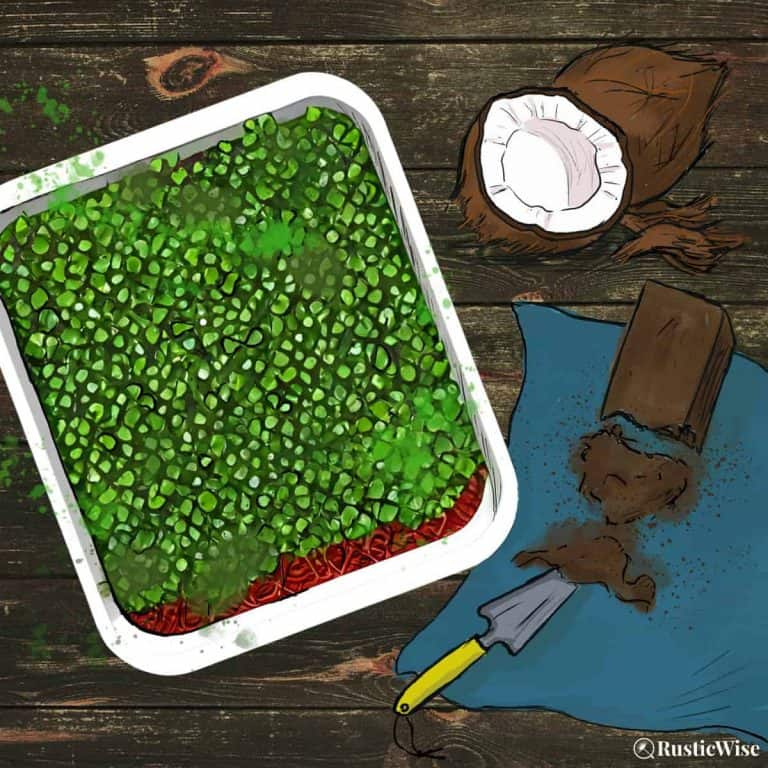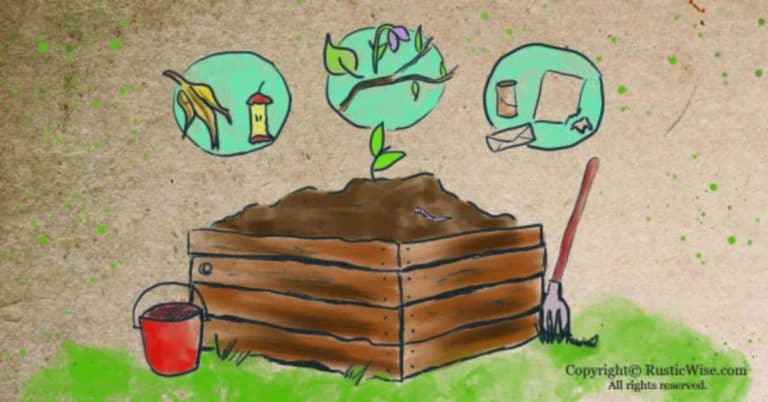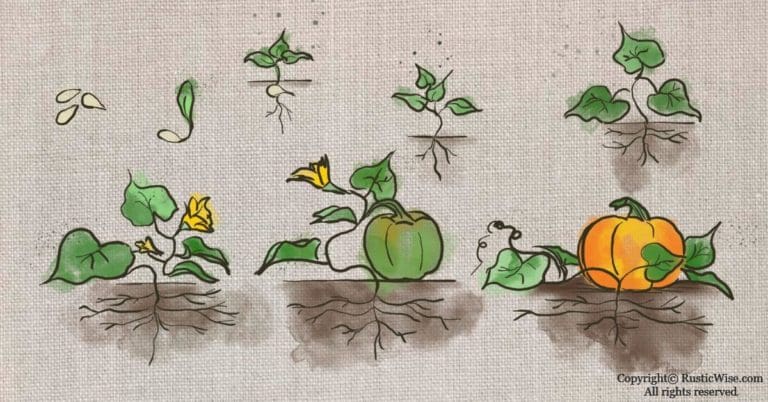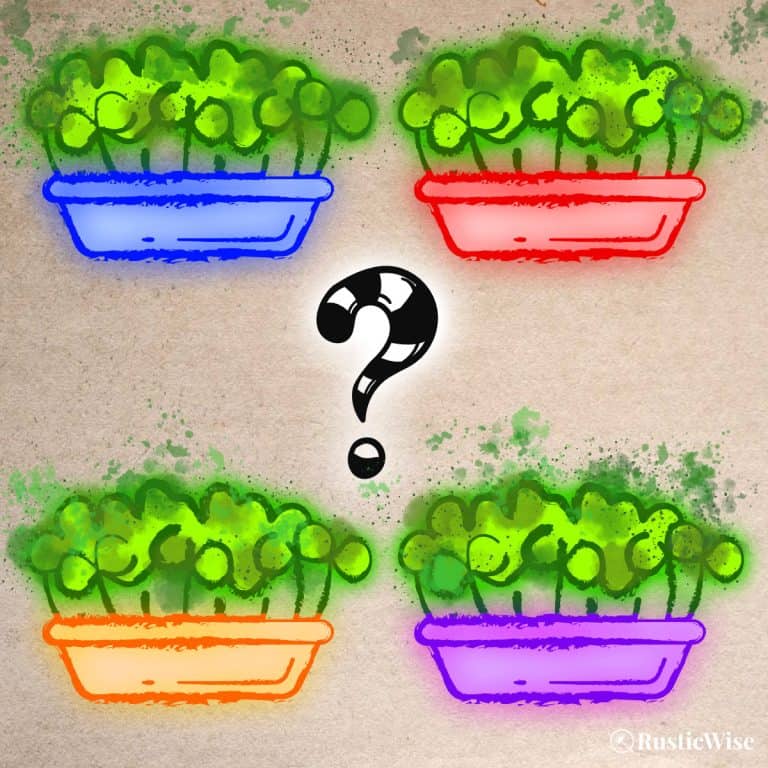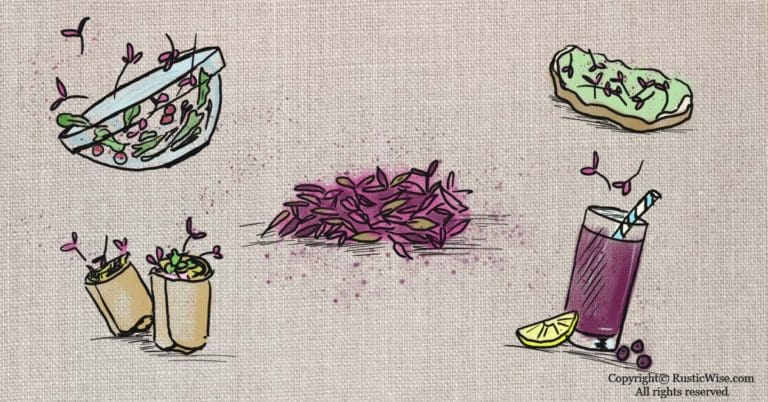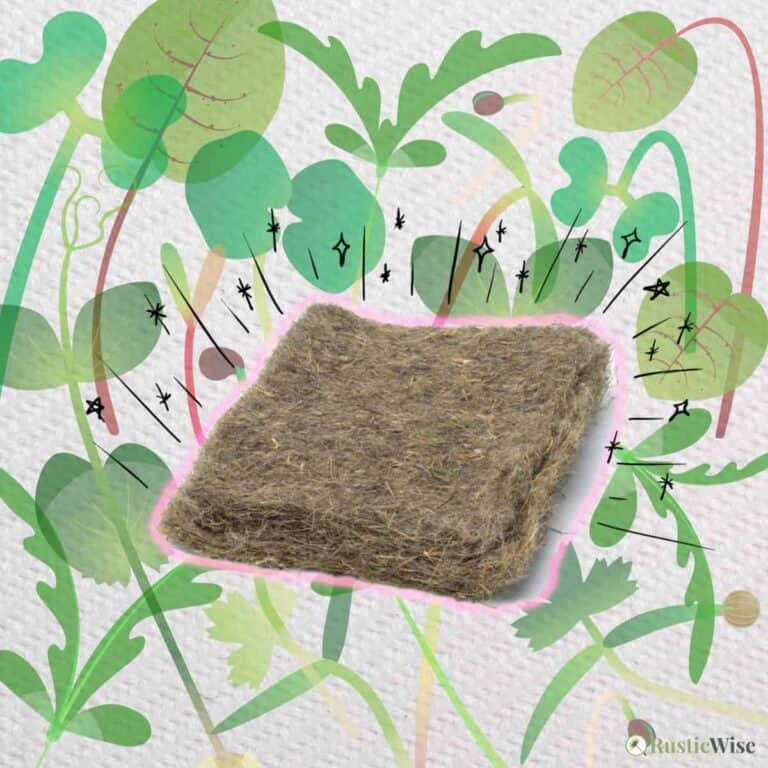Can You Compost Hair? Here’s What You Need To Know
If you have a compost bin or a vermicompost, you might be wondering, can you compost hair? The short answer is yes, so long as the hair doesn’t have chemicals on it. If your locks have been dyed or coated in hairspray, it’s not suitable for the compost pile. You can compost human hair, as well as dog or cat fur. If your dog recently got treated for worms, unfortunately its fur can’t be safely composted either. Hair is a surprisingly rich source of slow-release nitrogen and protein.
Composting is a great way to reduce your carbon footprint. According to the United States Environmental Protection Agency (EPA), yard waste and kitchen food scraps comprises more than 30 percent of household garbage thrown away. Doing your part as a global citizen by composting what you can helps divert materials away from landfills which wastes precious space and releases harmful methane.
Even something as small or seemingly inconsequential as hair can play a part in contributing to a compost heap.
In this article, we’ll be answering some of the most frequently-asked questions on composting hair and how you can use it in your garden.
Can you compost hair (really)? !
Yes! Composting hair is an awesome way to reuse natural materials that would otherwise end up in landfills. Human hair and pet fur appears on the list of items you can compost on the EPA website, along with numerous other institutions such as the University of Florida, Institute of Food and Agricultural Sciences.
We know there’s a bit of ‘grossness’ factor when it comes to composting hair (or really anything from the human body).
It’s important to remember that hair follicles once out of the scalp are no longer living. That’s why it doesn’t hurt when you get a hair cut, or when you cut your nails (fingernails and toenails can also be added to the compost, by the way!)
What exactly is hair made of?
Each hair shaft is made of a fibrous protein known as keratin, a few lipids, and water. Hair contains around 15 percent nitrogen.
(When you break it down like that, hair doesn’t sound too gross anymore, right?)
Nitrogen plays a vital part of the composting process by providing microorganisms with nutrition they need to keep on feeding (and in turn decomposing) that pile of compost. More on this down below.
How hair helps your compost pile
In order for a backyard compost pile to work, it needs a few things:
- Oxygen
- Water (moisture)
- “Green” components (nitrogen-rich materials such as kitchen scraps, fresh grass or plant clippings, and yes, human hair/pet fur)
- “Brown” components (carbon-rich materials such as twigs, branches, and straw)
- Microorganisms and various insects
There’s a bit of a science to composting: you need a balance of green nitrogen-rich elements and carbon-rich brown elements.
As plant matter (green components) contain both carbon and nitrogen, you need roughly equal parts green and brown elements to achieve the right balance of carbon and nitrogen (4).
Green components help by providing microorganisms with the nutrition to reproduce and grow (and continue to break down your compost pile). Brown components help provide the energy.
Generally, brown elements take longer to break down than green elements (think of a branch vs. a banana peel).
However, in the case of hair (which is considered a green component), it takes longer to break down than other “greens.” A banana peel for instance may decompose in a compost within three to four weeks (depending on the compost conditions).
A hair shaft is composed of tough, fibrous protein. It can take up to 2 years for hair to decompose in a compost. But during this time, hair provides a slow, steady source of nitrogen to keep compost critters happy.
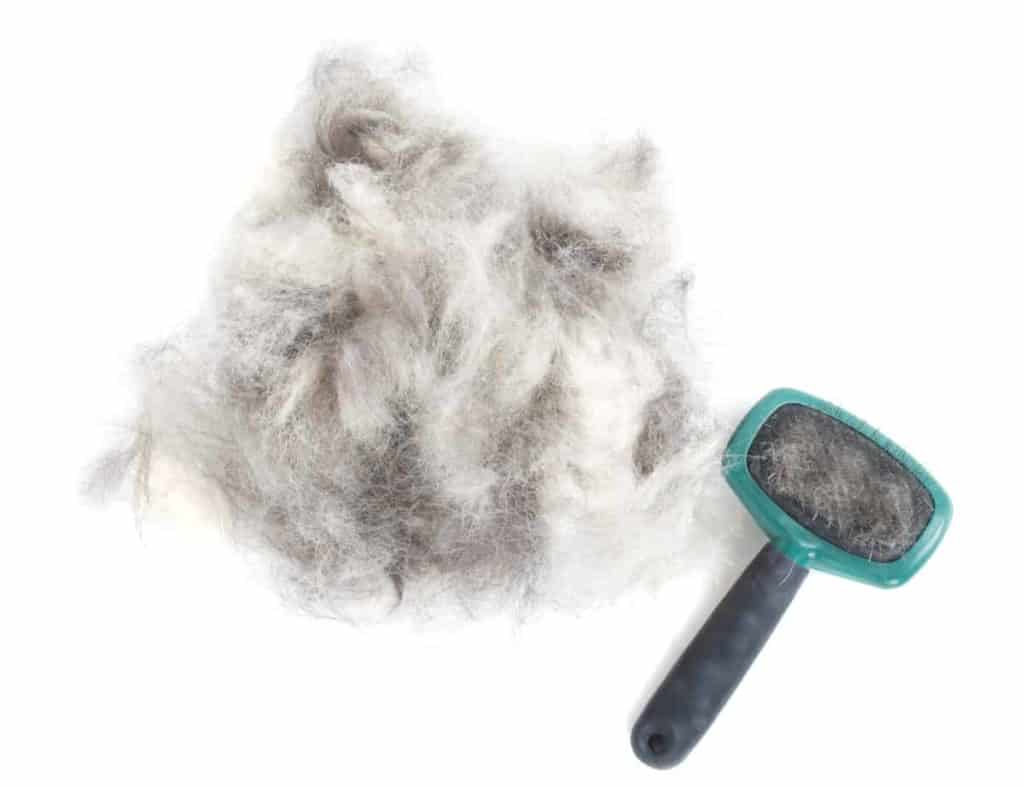
Tips for composting hair
As hair decomposes slowly, here are a few tips to speed up the process.
Can you add hair to a vermicompost (worms)?
Yes, you can feed hair to your worms if you have a vermicompost at home. While it sounds a bit gross to feed your worms hair (whether it’s your own, or your cat’s or dog’s), hair provides a good source of protein for your wriggly friends. Just remember to only add untreated hair (no dyed hair!) as any type of chemicals could cause harm to worms.
And to help with the digestion of hair, it’s a good idea to cut hair into small pieces before adding it.
Hair as fertilizer?
After learning more about how hair shafts are rich in protein, perhaps it’s not too surprising to discover that hair makes a great fertilizer in your garden too!
In fact, hair is a natural substance that can be thrown on to garden plants as a fertilizer without causing harm.
A study led by Vlatcho Zheljazkov at Mississippi State University compared hair clippings with commercial fertilizers. They studied the growth of four plants: lettuce, feverfew, wormwood, and yellow poppy. They applied four types of treatments: a controlled-release fertilizer, a water-soluble fertilizer, uncomposted hair cubes, and no treatment.
Overall, they found that plants which received the hair treatment produced greater yields than those who received no fertilizer. However, fast growing plants like lettuce and wormwood performed better with the commercial fertilizers. Yellow poppy grew better with the hair treatment and feverfew yields didn’t differ much between the different fertilizers.
The researchers conclude that hair may be used as a fertilizer, however fast-growing plants may still benefit from synthetic fertilizers.
Tip: Some people who use hair as a fertilizer in the garden claim it wards off rabbits, snails, and slugs. I haven’t found any facts or studies to back this up, but it sounds like it’s worth a try!
Can you put hair in potted plants?
Yes, as hair acts as a slow-release fertilizer, you can perk up your indoor plants by placing small hair clippings around the soil of potted plants. Over time, your plants may benefit from the protein, nitrogen and other nutrients from hair.
Things that you should NOT put in a compost pile
According to the EPA, you shouldn’t put the following things in your compost:
- Pet feces
- Dairy products
- Meat or bones (which may attract pests)
- Plants with diseases
- Plants treated with pesticides
- Oil or fat
- Leaves or branches from the black walnut tree (may release harmful substances)
- Ashes from coal or charcoal (may harm plants)
The takeaway: can you compost hair?
The next time you’re tempted to dump your hair in the trash, consider composting it instead. You can safely compost human hair, and dog or cat fur so long as it’s chemical-free. You’ll be surprised how much good this can do for your garden—and the environment! If you’ve got a lot of hair, cut it into smaller pieces so that things start breaking down sooner. Hair is also a good fertilizer for your garden, or indoor potted plants. We hope this article has given you plenty of ideas about what to do with all those extra locks lying around (or stuck in brushes).
Related questions
Can you compost eggshells?
Yes, eggshells are rich in calcium, which is a key nutrient in soil. Eggshells would be considered a green material as it’s also rich in nitrogen. Just crush the eggshells first before adding them to your compost.
Can you compost vacuum dust?
Surprisingly, yes. While you may think that the gray gunk in your vacuum cleaner is just dust, it’s actually comprised of many tiny particles of soil and organic materials. Vacuum dust is another green material rich in nitrogen.

References
- United States Environmental Protection Agency (EPA), Composting At Home, https://www.epa.gov/recycle/composting-home. Accessed May 2021.
- University of Florida, Institute of Food and Agricultural Sciences, Can I Compost It? https://sfyl.ifas.ufl.edu/sarasota/natural-resources/waste-reduction/composting/what-is-composting/what-can-be-composted/can-i-compost-it/. Accessed May 2021.
- Beauty Tomorrow, The Chemical Properties of Hair, https://beautytmr.medium.com/the-chemical-properties-of-hair-955985908d05. Accessed May 2021.
- Foster, Clare (2014). Compost: How to make and use organic compost to transform your garden. Mitchell Beazley. ISBN 978-1-84533-895-4.
- Worm Composting, Can worms recycle hair? https://www.worm-composting-help.com/can-worms-recycle-hair.html#:~:text=Good%20to%20know%20that%20your,anything%20that%20is%20organic%20material. Accessed May 2021.
- Live Science, Human Hair Makes Good Fertilizer, https://www.livescience.com/5260-human-hair-good-fertilizer.html. Accessed May 2021.

Author: Theresa Tesolin
Theresa is co-founder of RusticWise. She helps people unleash their inner DIY spirit by encouraging them to get dirty and make or grow something from scratch.

